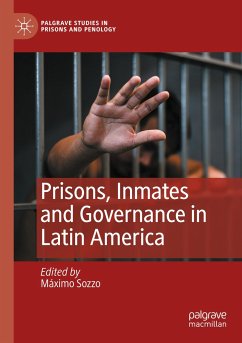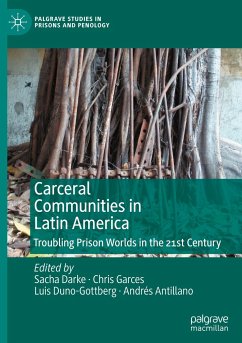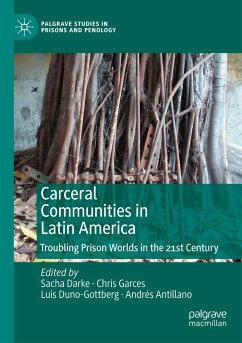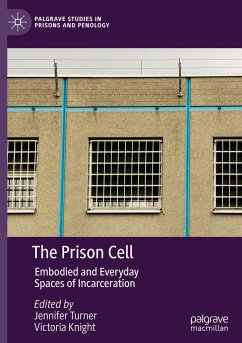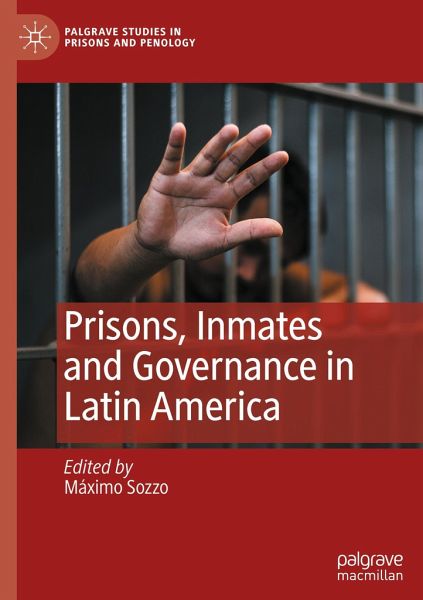
Prisons, Inmates and Governance in Latin America

PAYBACK Punkte
0 °P sammeln!
This edited collection addresses the topic of prison governance which is crucial to our understanding of contemporary prisons in Latin America. It presents social research from Nicaragua, the Dominican Republic, Venezuela, Colombia, Ecuador, Brazil, Peru, Uruguay and Argentina to examine the practices of governance by the prisoners themselves in each unique setting in detail. High levels of variation in the governance practices are found to exist, not only between countries but also within the same country, between prisons and within the same prison, and between different areas. The chapters m...
This edited collection addresses the topic of prison governance which is crucial to our understanding of contemporary prisons in Latin America. It presents social research from Nicaragua, the Dominican Republic, Venezuela, Colombia, Ecuador, Brazil, Peru, Uruguay and Argentina to examine the practices of governance by the prisoners themselves in each unique setting in detail. High levels of variation in the governance practices are found to exist, not only between countries but also within the same country, between prisons and within the same prison, and between different areas. The chapters make important contributions to the theoretical concepts and arguments that can be used to interpret the emergence, dynamics and effects of these practices in the institutions of confinement of the region. The book also addresses the complex task of explaining why these types of practices of governance happen in Latin American prisons as some of them appear to be a legacy of a remote pastbut others have arisen more recently. It makes a vital contribution to the fundamental debate for prison policies in Latin America about the alternatives that can be promoted.



